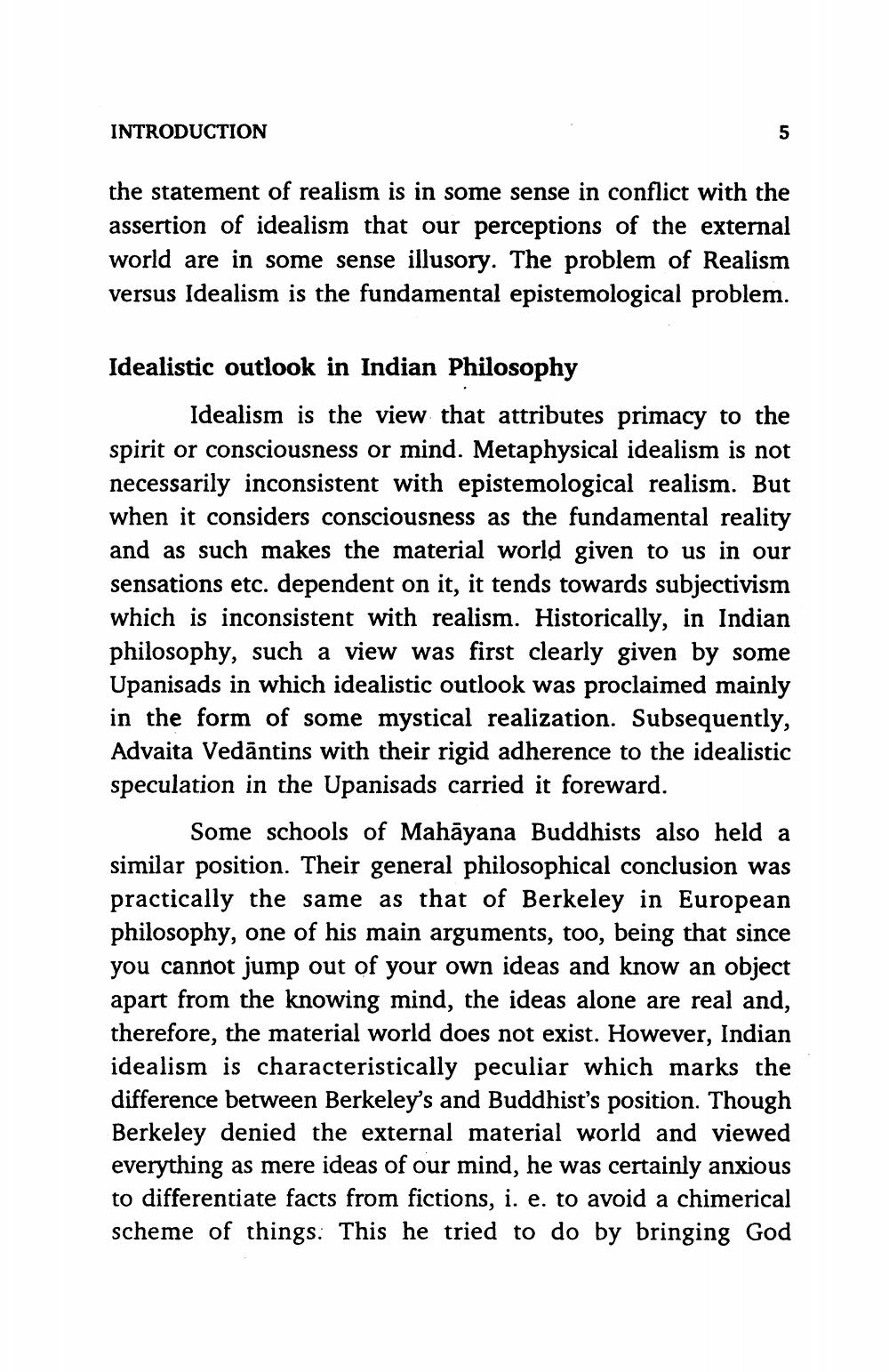________________
INTRODUCTION
5
the statement of realism is in some sense in conflict with the assertion of idealism that our perceptions of the external world are in some sense illusory. The problem of Realism versus Idealism is the fundamental epistemological problem.
Idealistic outlook in Indian Philosophy
Idealism is the view that attributes primacy to the spirit or consciousness or mind. Metaphysical idealism is not necessarily inconsistent with epistemological realism. But when it considers consciousness as the fundamental reality and as such makes the material world given to us in our sensations etc. dependent on it, it tends towards subjectivism which is inconsistent with realism. Historically, in Indian philosophy, such a view was first clearly given by some Upanisads in which idealistic outlook was proclaimed mainly in the form of some mystical realization. Subsequently, Advaita Vedāntins with their rigid adherence to the idealistic speculation in the Upanisads carried it foreward.
Some schools of Mahāyana Buddhists also held a similar position. Their general philosophical conclusion was practically the same as that of Berkeley in European philosophy, one of his main arguments, too, being that since you cannot jump out of your own ideas and know an object apart from the knowing mind, the ideas alone are real and, therefore, the material world does not exist. However, Indian idealism is characteristically peculiar which marks the difference between Berkeley's and Buddhist's position. Though Berkeley denied the external material world and viewed everything as mere ideas of our mind, he was certainly anxious to differentiate facts from fictions, i. e. to avoid a chimerical scheme of things. This he tried to do by bringing God




